TravelingForMiles.com may receive commission from card issuers. Some or all of the card offers that appear on TravelingForMiles.com are from advertisers and may impact how and where card products appear on the site. TravelingForMiles.com does not include all card companies or all available card offers.
Other links to products and travel providers on this website will earn Traveling For Miles a commission that helps contribute to the running of the site. Opinions, reviews, analyses & recommendations are the author’s alone and have not been reviewed, endorsed, or approved by any of these entities. Terms apply to all credit card welcome offers, earning rates and benefits and some credit card benefits will require enrollment. For more details please see the disclosures found at the bottom of every page.
The A321XLR is the newest narrow-body aircraft to roll out of an Airbus facility and Iberia is the first airline to take delivery of it and to put it to commercial use (Aer Lingus is expected to be next).
The ‘XLR’ in the aircraft’s name stands for ‘extra long range’ and with the ability to operate routes of over 5,000 miles, this is an aircraft that we’ll be seeing fly a significant number of transatlantic routes once deliveries start to ramp up.
Over the past week and ahead of its debut on the Madrid – Boston route on 14 November, Iberia was meant to be operating its first A321XLRs on orientation flights within Europe, but due to unforeseen delays, the first flights took place yesterday and I managed to catch up with the aircraft in Paris as it made its way back to its home base in Madrid on just its second ever flight with paying passengers.
Iberia A321XLR Business Class cabin
Iberia has fitted the A321XLR Business Class cabin with 14 lie-flat Thompson Aero Vantage Solo seats which are set out in a herringbone all-aisle-access layout (the seats are angled away from the windows and towards the aisle).
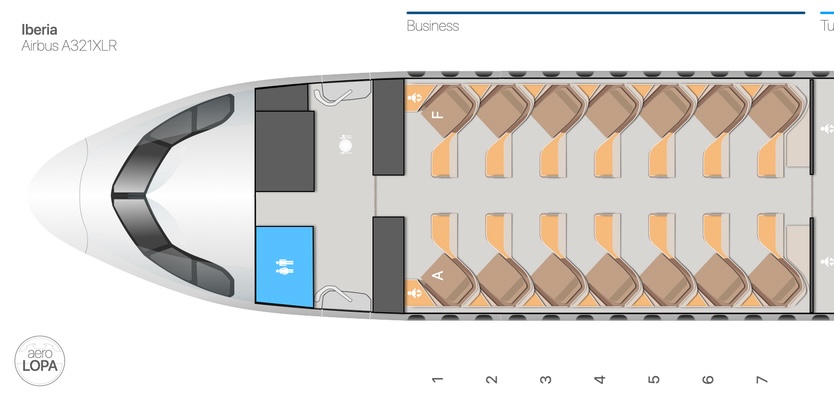
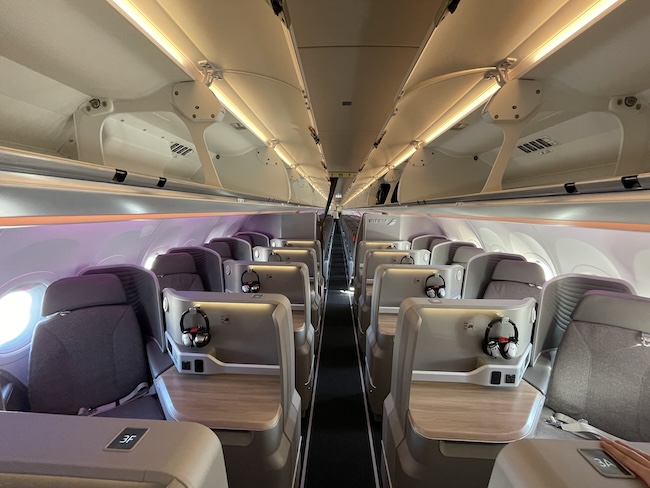
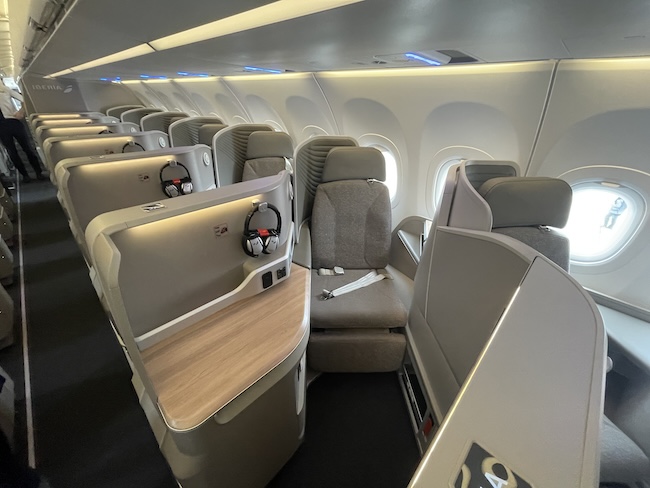
If this Business Class cabin looks a little familiar, it may be because it’s similar to the Business Class cabin that JetBlue offers on its various transatlantic routes.
The cabin comes equipped with mood lighting …
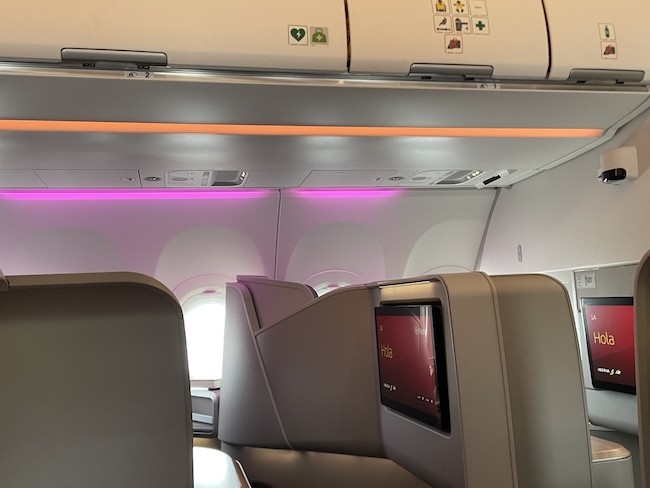
… and the new extra space overhead bins into which rollaboards are inserted on their sides.
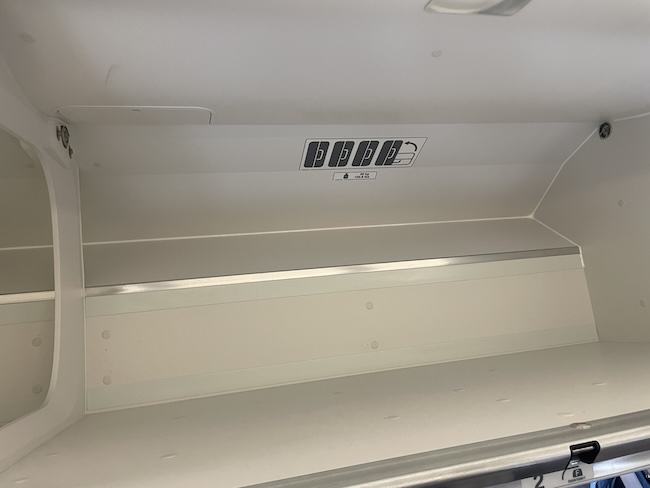
Passengers in row 1 should note that the overhead bins above seat 1A are taken up by the aircraft’s emergency supplies …
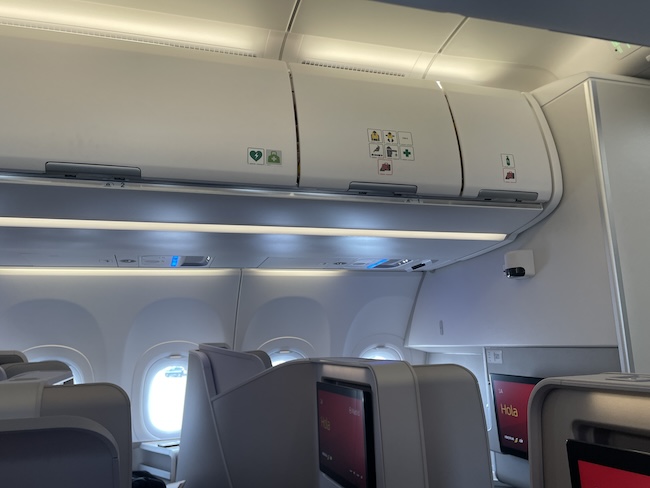
… and one of the overhead bins above 1F (the smaller one) also houses emergency supplies.
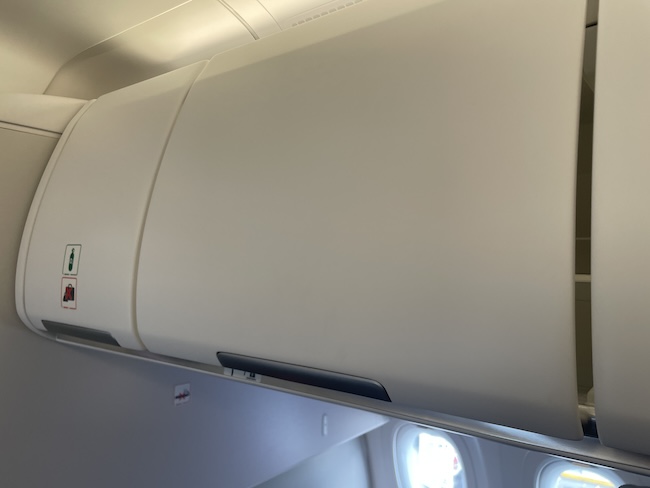
Iberia A321XLR Business Class seat
12 of the 14 seats in the Business Class cabin are identical or mirror images of one another, but the seats in row 1 are a little different and I’ll come on to them a little later.
The regular Business Class seats are 21” wide and look like this:
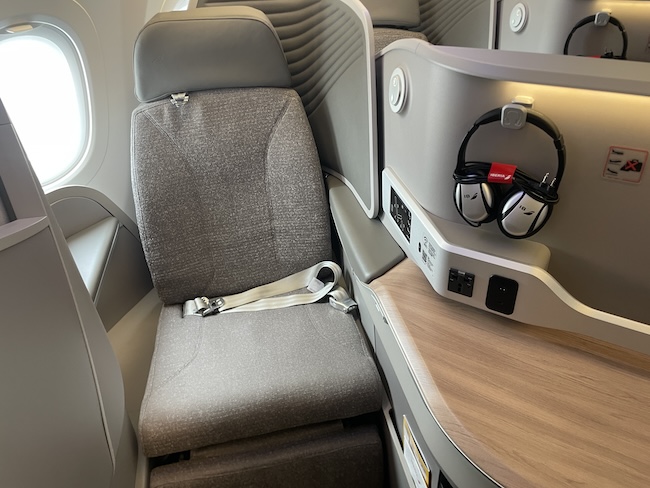
There are no privacy doors on these seats, but that shouldn’t make too much difference to the passenger experience as the seats are already reasonably private with the enclosure around each seat offering a lot of protection from the aisle and from any glances from passengers across the aisle.
This is the view from a seated position:
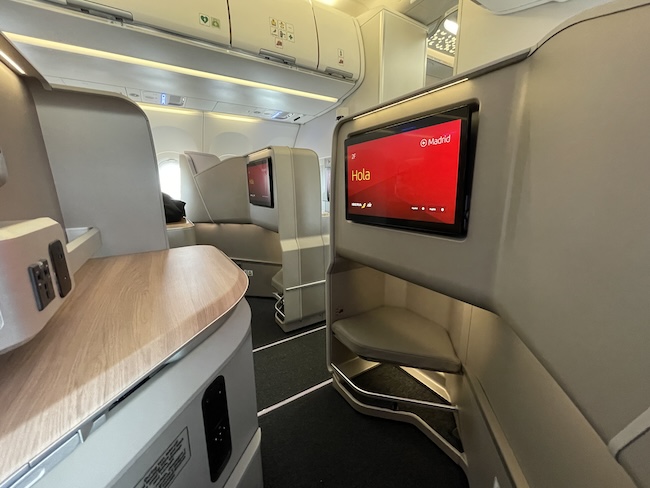
Due to the way the seats are angled, Business Class passengers don’t have a natural view out of the single window that each seat has access to, but you don’t have to turn your neck too far to get a look at what’s going on outside.
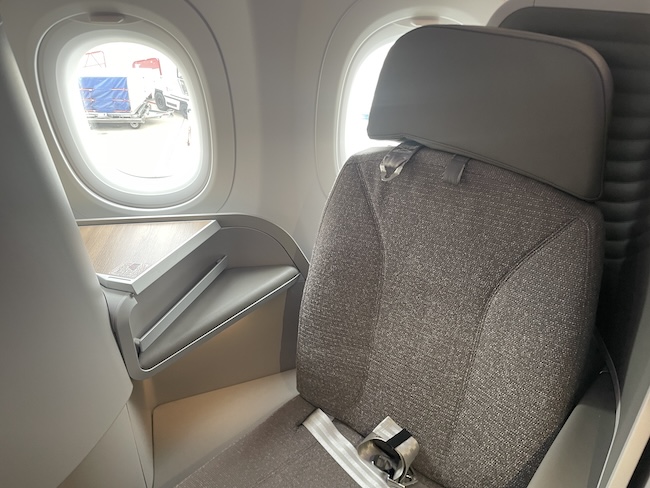
As you’d expect, these Business Class seats can be angled into a wide variety of positions using the control built into the side wall …
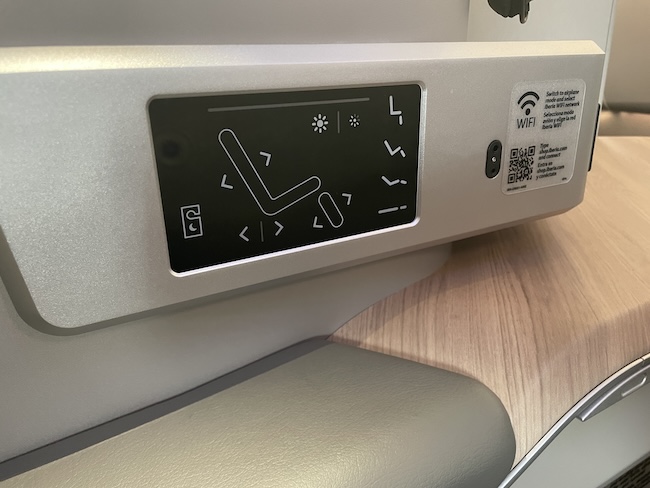
… and when in lie-flat mode, the seat joins up to an ottoman to form a bed that’s 6’4” (193cm) long.
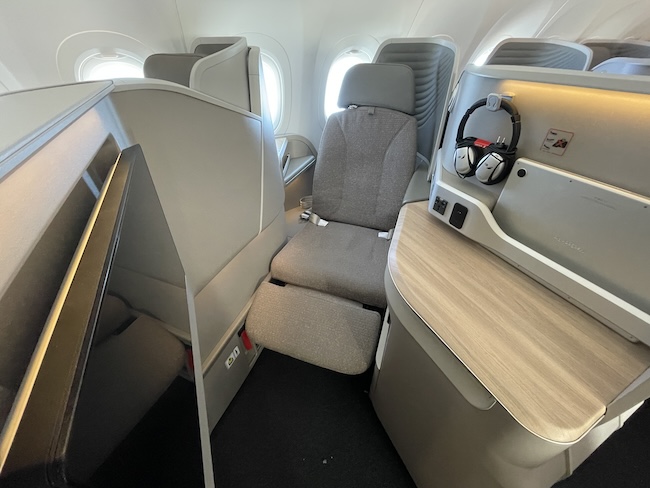
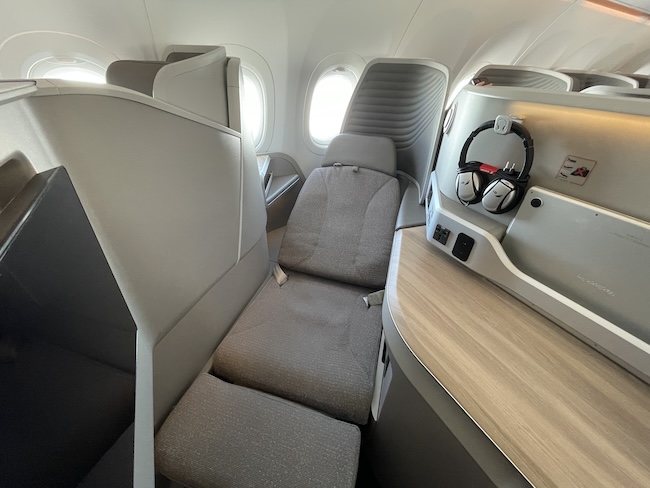
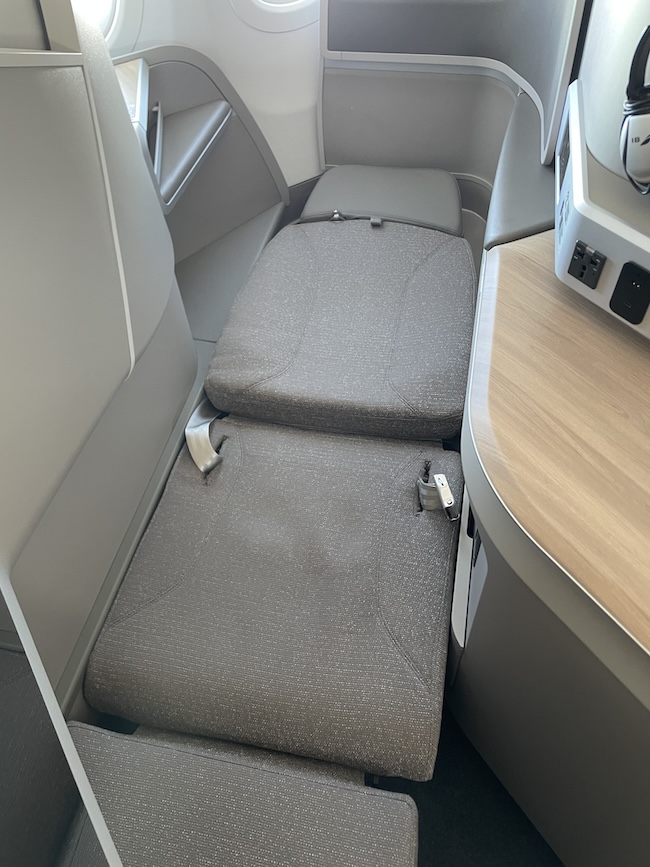
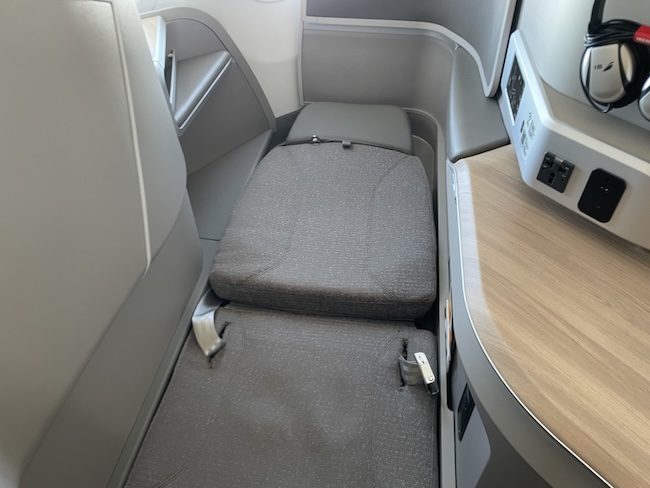
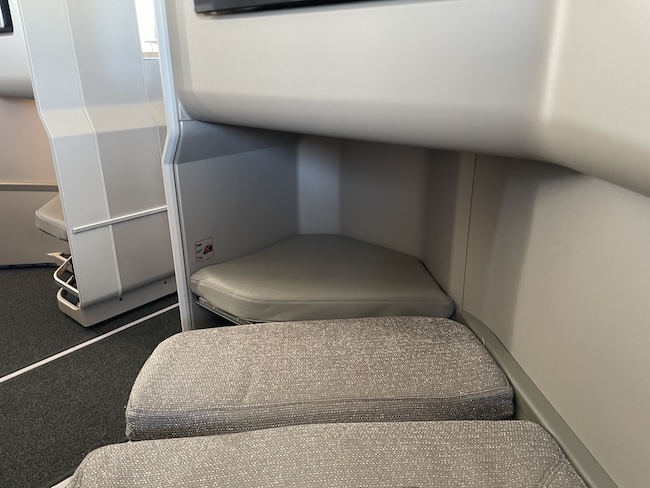
There are a couple of key things to note here.
Firstly, because the ottoman is quite open, there’s a lot of space for a passenger’s feet when the bed is in lie-flat mode and even with my shoes on, I had room to spare around my feet when I lay down.
Secondly, the seat forms a more spacious bed than I had expected it to, and this is probably due to the space that a passenger gets around their head and shoulders when the seat is fully reclined.
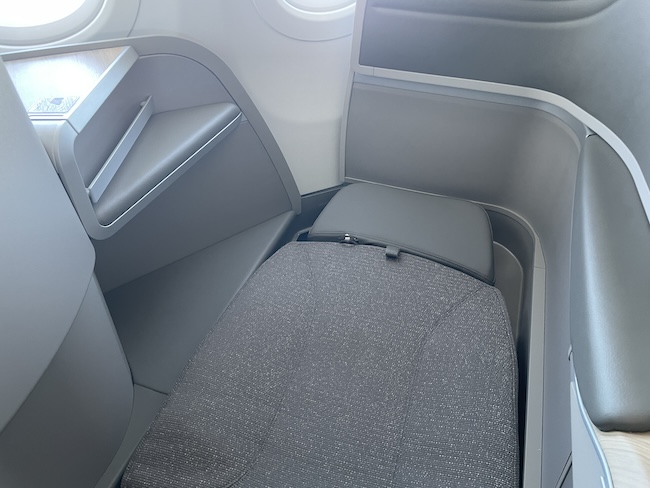
The design leaves a little space under the window which gets larger when the seat is reclined and it’s this space that seems to make quite a bit of difference.
To be clear, this isn’t a bed that will feel as spacious as the beds formed by a lot of the wide-body Business Class seats you’ll find flying across the Atlantic (e.g. United’s Polaris seat, American’s 777-300ER seat, the Delta One Suite, or BA’s Club Suite), but it’s also not as tight as you may expect and it’s definitely not as claustrophobic as the bed created by the ‘coffin seat’ found on some American Airlines 777-200s, the bed in BA’s legacy Club World cabin, or the truly horrendous bed/seat on Virgin Atlantic’s dreamliners.
In the area around the seat, there are a few places where a passenger can store the items they wish to keep near them during their flight, but secure storage is at a premium.
If you want to keep small items safe, the mini shelf by the window opens up to reveal a small cubby that’s colored Iberia red, but while this is big enough to house items like wallets, passports, cell phones and cables, it’s not big enough to store anything larger.
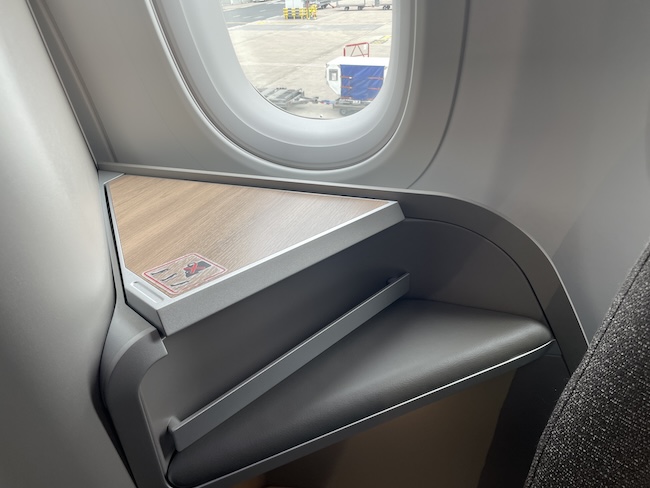
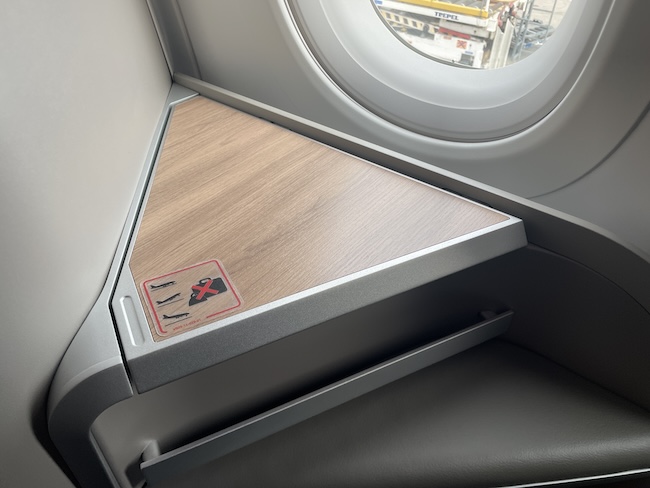
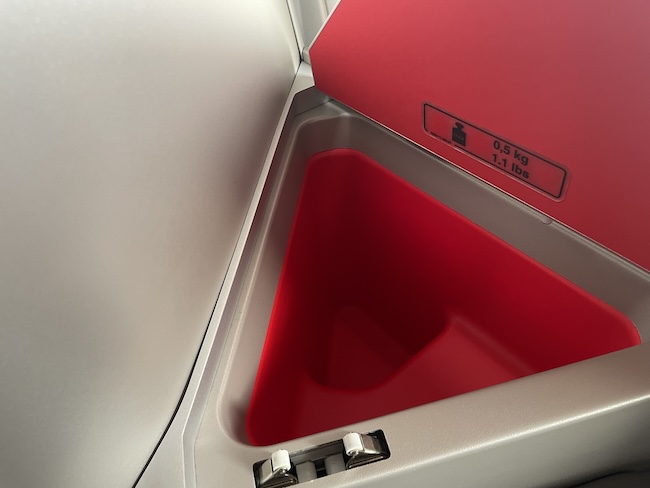
As far as enclosed storage areas go, that’s it.
Elsewhere, there’s a large, fixed shelf between the aisle and the seat which, given its proximity to the seat’s power outlets (a universal AC outlet, a USB-A port and a USB-C port), can be a good place to charge devices.
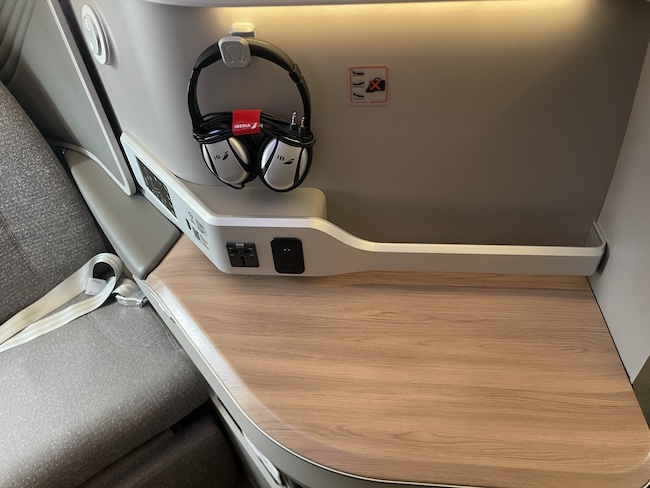
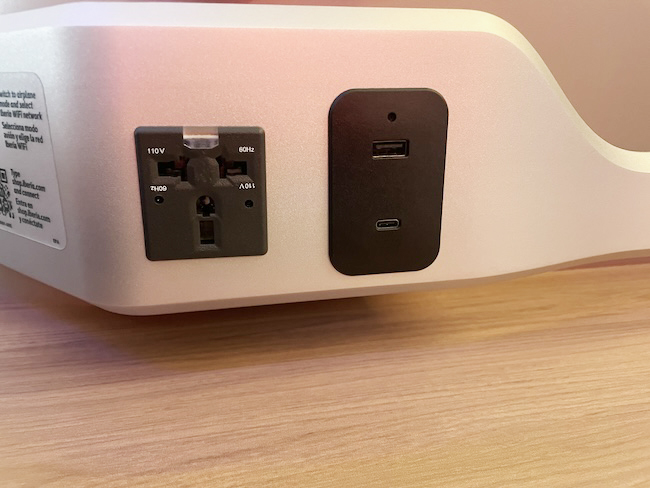
This shelf also comes with a metal bar behind which you can place smaller electronic devices (possibly even a 15” laptop) to prevent them from moving around during mild turbulence.
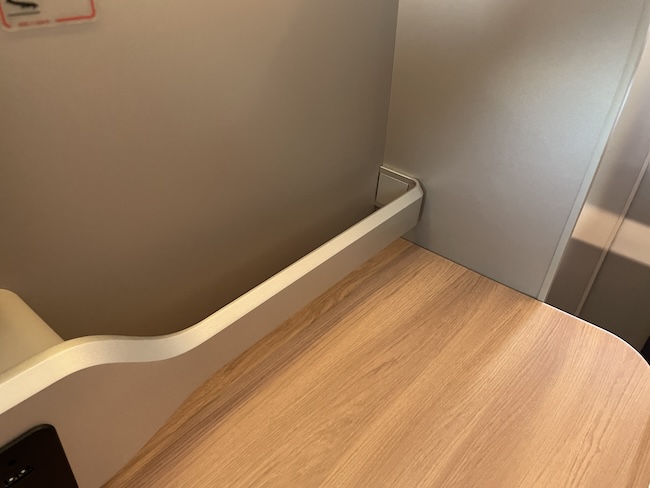
A similar metal bar can be found in a small area under the window, but this one is only large enough to handle a very small tablet or a smartphone.
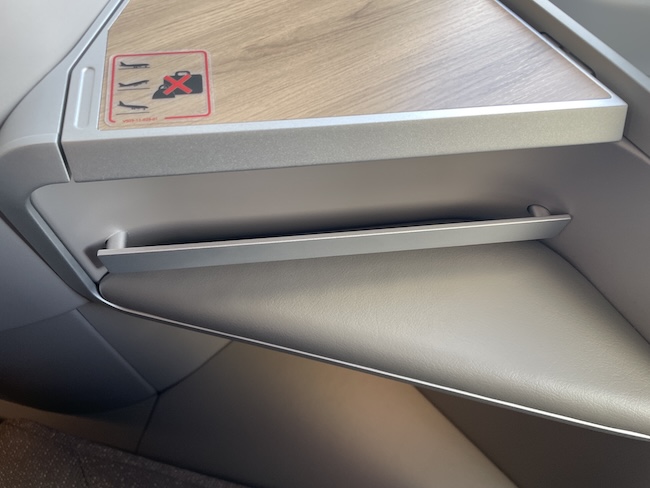
At floor level, there’s a storage space under the ottoman into which a small soft-side cabin bag would probably fit …
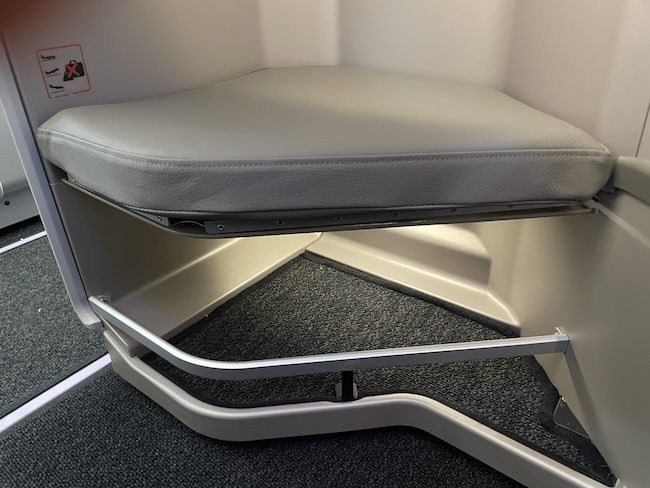
… and closer to the seat, there’s a further floor-level storage area which is just about big enough to hold a small pair of shoes (my size 10s didn’t fit).
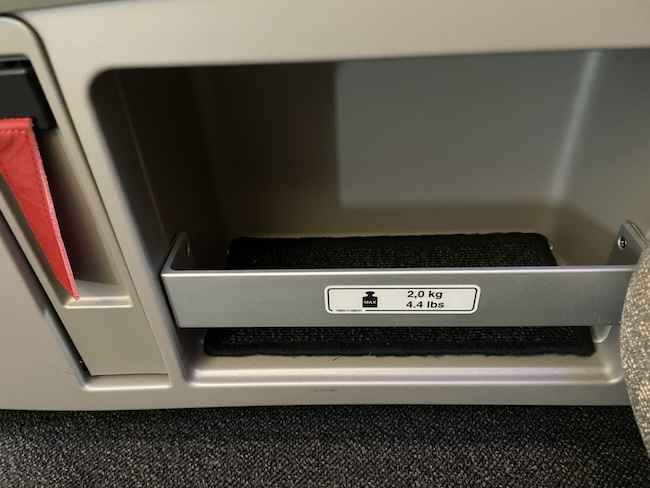
That’s it for storage space around the seat. Not bad, but not fantastic either.
The seat’s tray table deploys from under the large fixed shelf …
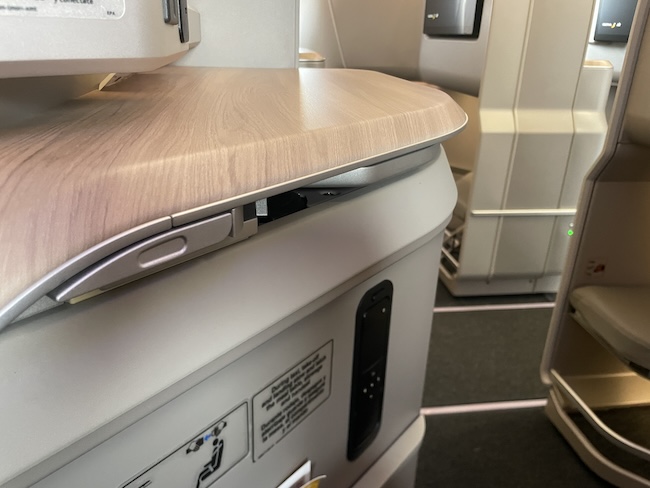
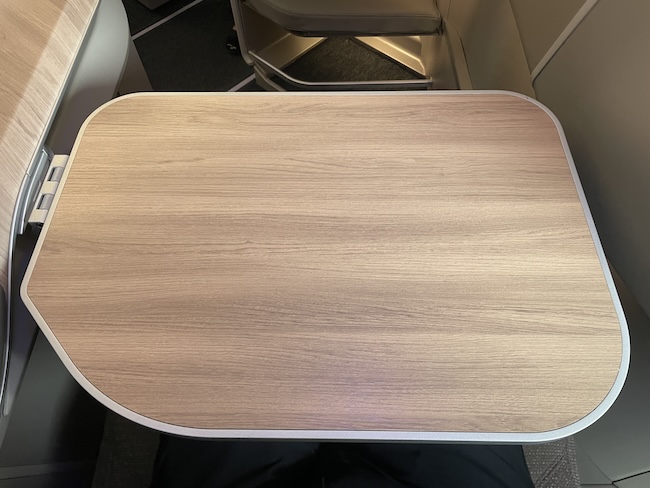
… and is very close in size to a 16” MacBook.
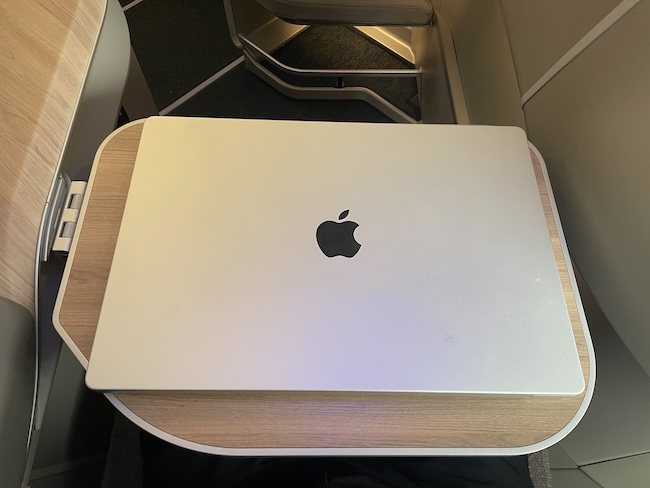
While the tray table can be moved along the arc that its mechanical arm makes, it can only be locked in one position (directly in front of the seat and quite close in) so it’s not particularly versatile.
On a more positive note, I should mention that the table seems to be well put together, so it didn’t bounce around too much during the flight and it made for a good base on which to type. That’s reasonably impressive for a table with just one attachment point.
Each seat also comes with its own entertainment screen – an 18” 4K UHD touch screen – which comes stowed against one of the seat’s side walls …
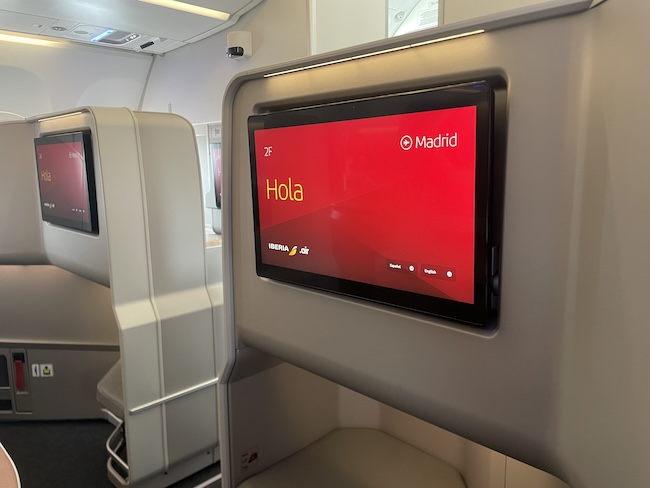
… and which can be pulled out and deployed directly ahead of a seated passenger.
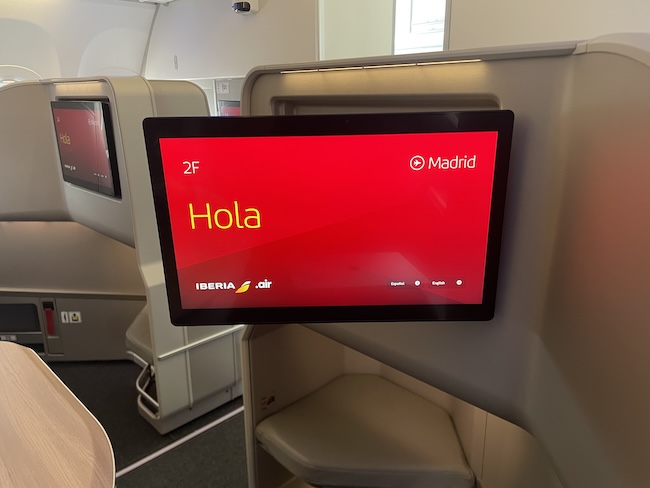
When seated upright, it should be easy for most passengers to control the in-flight entertainment through touch alone, but when reclined and further away from the screen, the unit’s remote control (built into the seat wall below the seat controls) can take over.
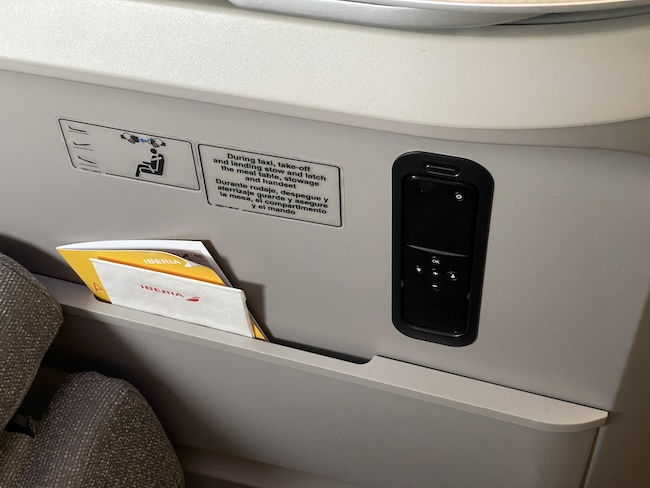
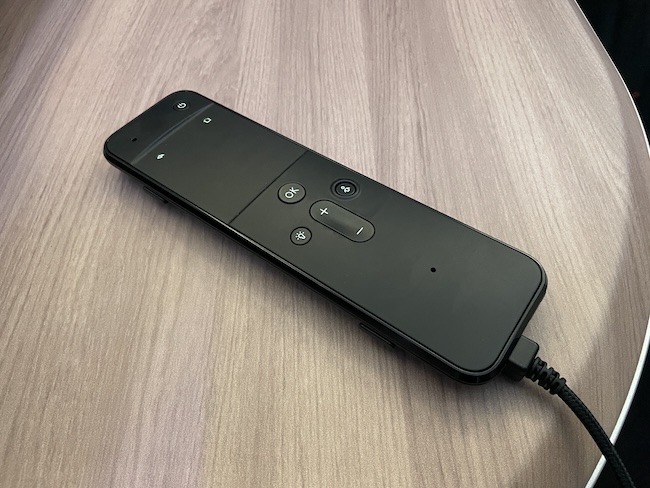
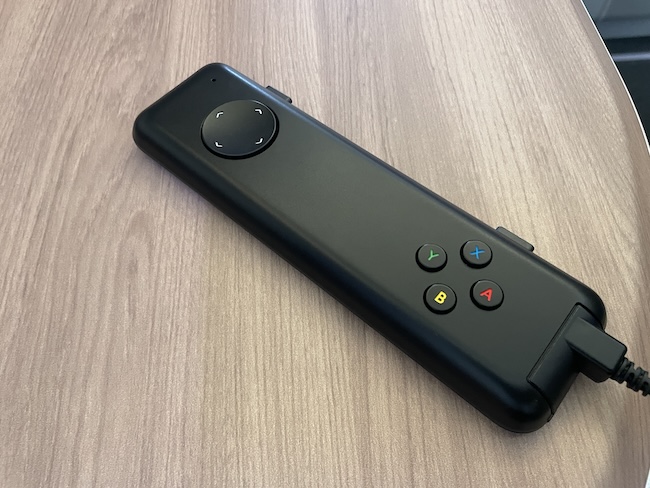
Iberia offers all Business Class passengers a rudimentary pair of over ear headphones which are just about ok …
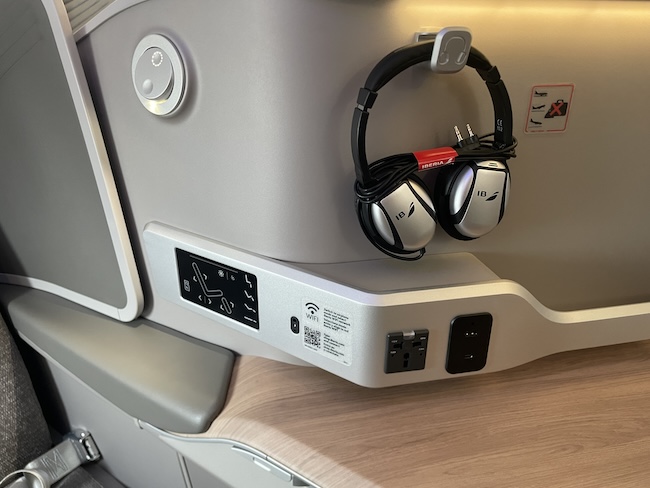
… but most passengers would be better off bringing their own, especially as I’m told that the inflight entertainment can pair with a set of Bluetooth headphones/earbuds (I didn’t have an opportunity to test this out).
Generally speaking, Iberia’s in-flight entertainment options are quite good, but I’m not going to explore what the airline was offering on this flight as it will probably have changed by the time you’re reading this, so, instead, here’s a link to Iberia’s entertainment page where you can see what’s being offered right now.
As far as the regular Business Class seats go, there are two more things worth mentioning.
For illumination, the seat offers a small reading light in the side wall that’s fitted at around head height …
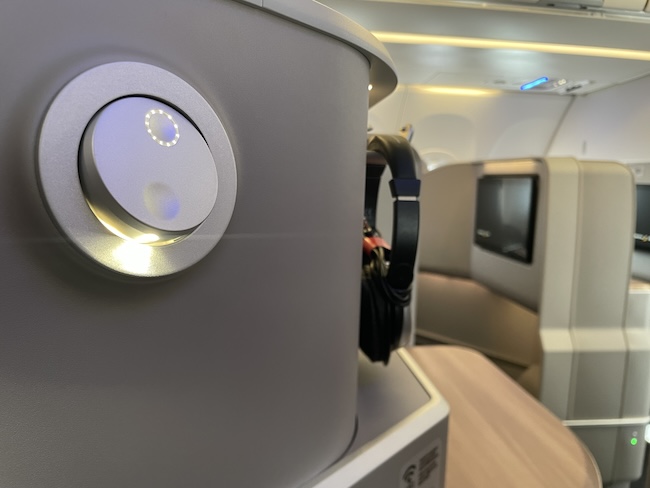
… and for anyone who needs more light than this small bulb can offer, there’s a second light overhead.
Importantly, the ceiling above the seat is also where you’ll find an air vent which can be controlled by the passenger in the seat below and this, rather importantly, means that passengers in this Business Class cabin are not at the mercy of the cabin thermostat that only the crew can control.
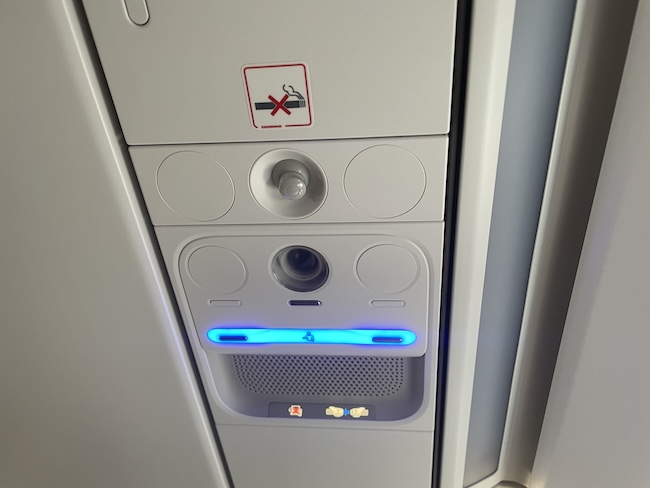
This isn’t new for the A3321XLR as the ceiling fixture that holds the overhead light and the air vent on this aircraft can also be found on Iberia’s A320neos.
Row 1 Business Class seats
I’d like to be able to report that Iberia has followed JetBlue’s lead and installed two larger ‘suites’ in row 1, but that’s not how things have played out.
Mostly, the seats in 1A and 1F are the same as the seats you’ll find in rows 2 through 7, but they do come with a few subtle differences.
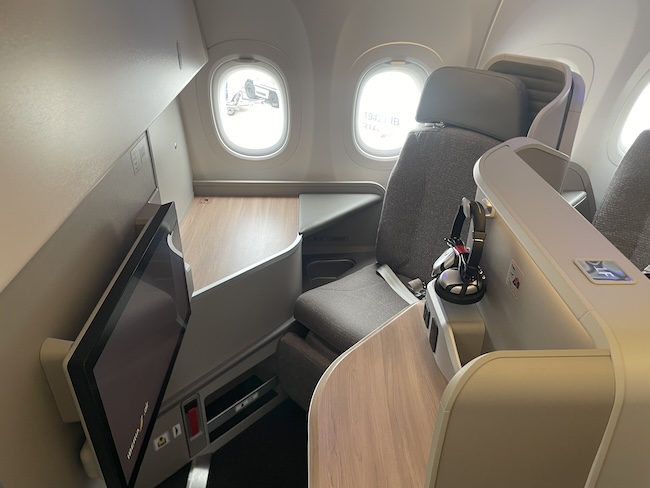
Firstly, because the seats in row 1 have a bulkhead and not another seat ahead of them, they have access to two windows and come with a considerably larger shelf under those windows.
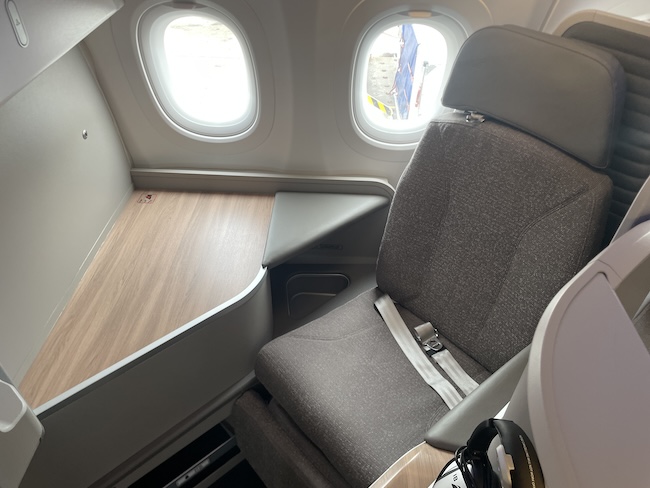
Secondly, the bulkhead allows the two seats in row 1 to offer a coat hook which, while not a major differentiator, is something nice to have given the limited space that the crew have to store passenger jackets.
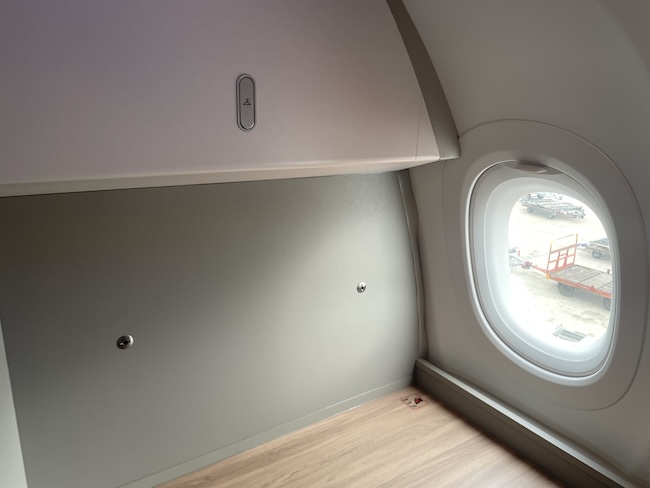
Thirdly, the storage area under the window isn’t a cubby (there’s no cover/lid). It’s more of a sunken pot in which a passenger can place a few small items.
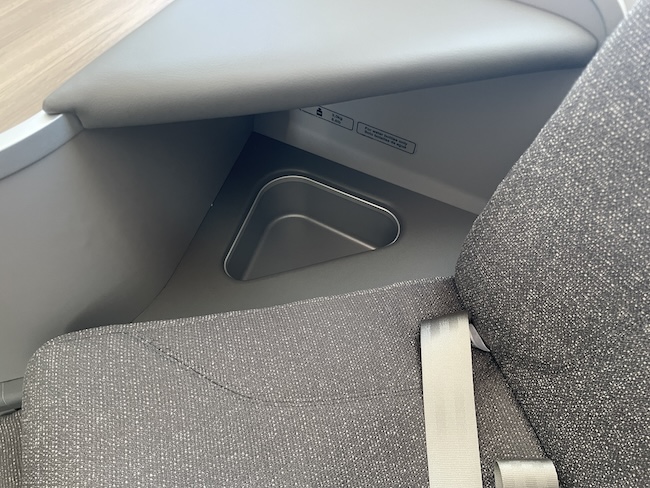
Finally, the ottoman in seats 1A and 1F is a little smaller than the ottoman used for all the other seats in the cabin and for passengers who aren’t particularly tall, this may make the row 1 ottoman slightly harder to reach when the seat isn’t in lie-flat mode.
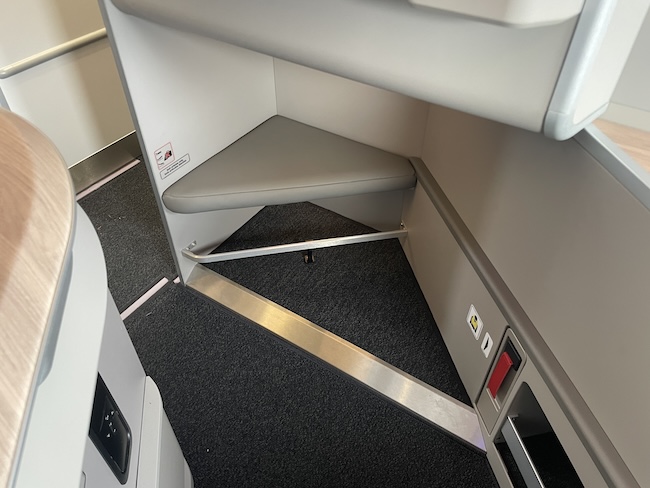
Overall, I would say that the seats in row 1 are probably marginally better than the seats elsewhere in the cabin thanks to the larger shelf under the window which can make the area feel a little more spacious.
The extra space afforded by the larger shelf isn’t hugely significant, so this isn’t a feature that I’d suggest paying more to have access to (if that’s the road that Iberia decides to go down), but it’s worth keeping in mind if your elite status permits you to select these seats when you book.
Final thoughts
As a narrow-body Business Class cabin, this one is fine, but no one should be getting overly excited at its imminent appearance on several of Iberia’s transatlantic routes.
The fact is that the routes that the A321XLR is taking over are currently operated by Iberia’s wide-body aircraft (mainly by A330s), and regardless of how well built the XLR’s Business Class seats may be, they’re never going to feel as spacious, be as comfortable, or be as good as the seats offered on the airline’s twin-aisle aircraft.
The A321XLR may be a wonderful piece of engineering (it’s a truly remarkable machine), but it also represents a less comfortable way of crossing the Atlantic than Iberia currently offers, and that loss of comfort will not be offset by cheaper fares. That’s an important thing to keep in mind.
Personally, I will usually choose a wide-body aircraft over a narrow-body aircraft when that choice is offered (because the wide-body experience will almost certainly be better), but if this A321XLR cabin is the only option available on a route that I wish to fly, I wouldn’t go out of my way to avoid it.
I wouldn’t actively seek it out because there are a lot of other, better, Business Class options out there, but this is still a considerable step up from what you’ll find in the Economy and Premium Economy cabins that fly across the Atlantic and for most people, I suspect that will be the most important thing.

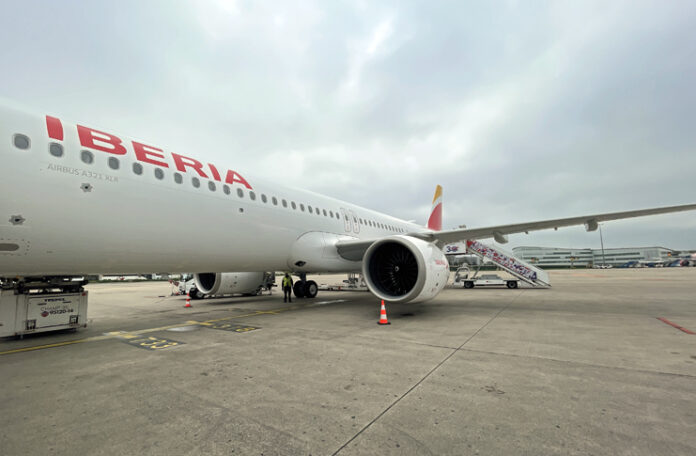


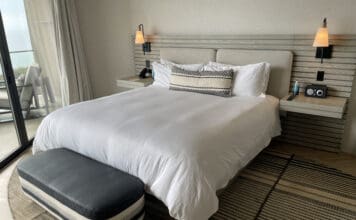


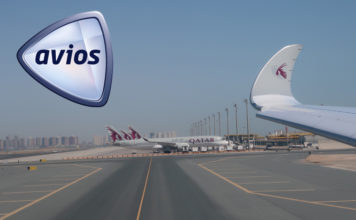


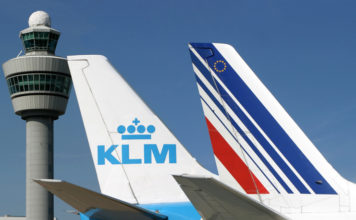



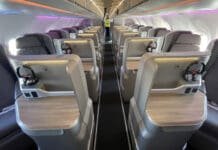



Thanks for this! I have been waiting on some photos of the cabin for our upcoming flight to Madrid from Boston. I used Avios and the a321 was the only plane that offered 2 business class award flights when I booked. Like you said, I would much rather be on the a330 or a350, but at just around 7 hours flying time, I think we will be comfortable.